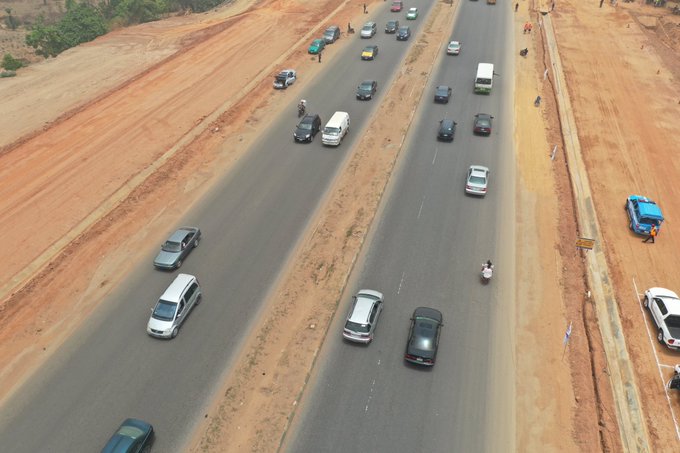A new report has unveiled the extent of corruption within Nigeria’s public project sector, revealing that contractors were paid a staggering N2.4 billion for 15 projects that were never even initiated. According to the findings, published by Tracka – the public service monitoring arm of BudgIT – 17 contractors across nine states pocketed millions in payments, yet failed to deliver on their contractual obligations.
The investigation tracked several specific payments, some of which raise serious concerns over public funds’ mismanagement. Notably, N401 million was disbursed to Mainstream Contractors in December 2023 by the Federal Ministry of Works and Housing for the rehabilitation of the Welcome-Nasarawa-Farewell road in Nasarawa State, a crucial project that connects Nigeria’s northern and southern regions. However, despite receiving the funds, no work has been initiated on the project site.
Further troubling findings show that between August and November 2023, a payment of N153 million was made to Icent Light Ltd for the construction of a town hall and event center in Delta State under the National Institute for Construction Technology. Similarly, A3 Interbiz Link Service Limited was awarded N88 million for the construction of a Primary Health Care (PHC) center in Osun State, yet no progress has been reported at the construction sites.
These payments, which are part of a larger sum of N3.9 billion, have raised alarm bells over the lack of accountability in the allocation and monitoring of public funds. Despite the monumental sums paid out, the projects either remain unfinished or have not been started at all.
The BudgIT report, titled Achieving National Development through Efficient Service Delivery, was launched on January 30, 2025, and provides detailed insights into the state of public projects across Nigeria. The analysis covers 1,404 projects, valued at N282.5 billion, across 25 states. Of these, only 720 projects (51%) have been completed, with 332 (24%) still ongoing. Alarmingly, 129 projects (9%) have been abandoned, and 223 (16%) have not even been initiated.
The report has raised serious concerns over the inefficiencies of Nigeria’s Ministries, Departments, and Agencies (MDAs). The Universal Basic Education Commission (UBEC) emerged as the top performer, boasting a project completion rate of 78%, followed by the Federal Ministry of Agriculture with 68%, and the Nigerian Rural Electrification Agency with 65%. On the other hand, the Lower Benue River Basin Development Authority and the Ministry of Niger Delta Affairs were highlighted for their appalling project completion rates of 20% and 16%, respectively.
In light of the alarming findings, Gabriel Okeowo, the Country Director for BudgIT, expressed grave concern over the repeated mismanagement of public funds intended for vital infrastructure development. Okeowo emphasized that the scale of non-execution of public projects, despite the allocation of funds, is a national crisis. He noted that many of the flagged projects were essential to Nigeria’s development and were often located in regions with critical infrastructural deficits.
Okeowo stated: “The trend of misappropriation and embezzlement of funds through public projects is extremely worrying. Poor oversight, as well as collusion between contractors and MDAs, has turned capital expenditure into one of the largest conduits for corruption. It is crucial that this issue is tackled with the seriousness it deserves, especially given the scale of Nigeria’s infrastructure needs.”
He further called for immediate and thorough investigations into these discrepancies. “The current administration, along with anti-corruption agencies, must act swiftly to close the loopholes that allow this plundering of resources to continue unchecked. It is imperative that defaulters are held accountable, and that these financial leakages are prevented,” Okeowo stressed.
BudgIT has called on the Economic and Financial Crimes Commission (EFCC) and the Independent Corrupt Practices and Other Related Offences Commission (ICPC) to investigate the misuse of funds reported in the 2023 federal budget. Okeowo insists that anti-graft agencies take decisive steps to hold contractors and officials accountable, which, he believes, will send a strong message to those looking to exploit Nigeria’s development funds.
In addition to legal action, Okeowo urged lawmakers to prioritize resolving the issue of abandoned projects. He argued that elected representatives must ensure the effective use of public funds by monitoring the execution of government projects. “The misuse of public funds affects every Nigerian. It’s imperative that lawmakers act decisively to salvage these projects, which were intended to improve the lives of the people,” he said.
The report has sparked widespread public outrage, with many Nigerians voicing concerns over the continued failure of government agencies to deliver on essential services. Citizens are increasingly frustrated by the regularity of unfinished projects, particularly in rural and underserved communities. Local leaders, civil society organizations, and community groups have also raised alarm over the lack of accountability in the execution of government projects, calling for more transparency and better oversight mechanisms.
Public dissatisfaction is further exacerbated by the fact that Nigeria has some of the most urgent infrastructure needs in Africa. From roads to health centers, and schools to power plants, the country’s development goals remain hindered by the poor execution of projects. The latest findings add to the growing chorus of criticism surrounding Nigeria’s public sector inefficiencies, urging reform and urgent action.
